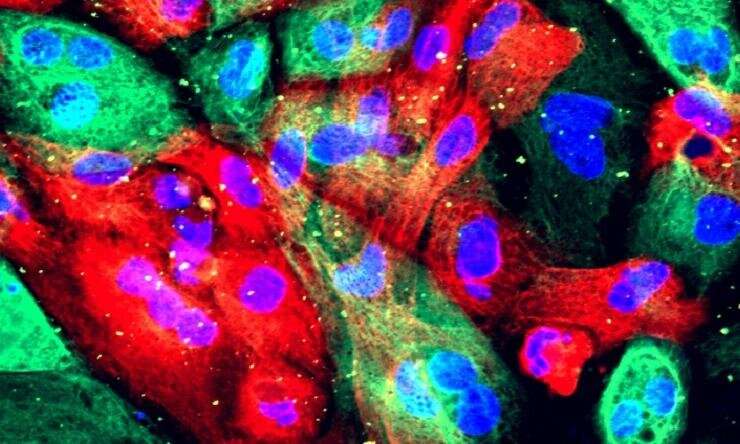Large international evaluation shows AI accurately diagnoses prostate cancer

Researchers at Karolinska Institutet in Sweden have together with international collaborators completed a comprehensive international validation of artificial intelligence (AI) for diagnosing and grading prostate cancer. The study, published in Nature Medicine, shows that AI systems can identify and grade prostate cancer in tissue samples from different countries equally well as pathologists. The results suggest AI systems are ready to be responsibly introduced as a complementary tool in prostate cancer care, researchers say.
The international validation was performed via a competition called PANDA. The competition lasted for three months and challenged more than 1000 AI experts to develop systems for accurately grading prostate cancer.
Rapid innovation
"Only ten days into the competition, algorithms matching average pathologists were developed. Organizing PANDA shows how competitions can accelerate rapid innovation for solving specific problems in healthcare with the help of AI," says Kimmo Kartasalo, a researcher at the Department of Medical Epidemiology and Biostatistics at Karolinska Institutet and corresponding author of the study.
A problem in today's prostate cancer diagnostics is that different pathologists can arrive at different conclusions even for the same tissue samples, which means that treatment decisions are based on uncertain information. The researchers believe the use of AI technology holds great potential for improved reproducibility, that is, increased consistency of the assessments of tissue samples irrespective of which pathologist performs the evaluation, leading to more accurate treatment selection.
Accurate diagnostics
The KI researchers have shown in earlier studies that AI systems can indicate if a tissue sample contains cancer or not, estimate the amount of tumor tissue in the biopsy, and grade the severity of prostate cancer, comparably to international experts. However, the main challenge associated with implementing AI in healthcare is that AI systems are often highly sensitive towards data that differ from the data used for training the system, and may consequently not produce reliable and robust results when applied in other hospitals and other countries.
"The results from PANDA show for the first time that AI systems can produce an equally accurate diagnosis and grading of prostate cancer in an international setting as human pathologists. The next step is controlled studies for evaluating how to best introduce AI systems in patient care," says Martin Eklund, associate professor at the Department of Medical Epidemiology and Biostatistics at Karolinska Institutet and the last author of the study.
"Future studies should also include a larger variety of rare but unusually challenging biopsies as well as samples from countries with more varied ethnicity and demographics," he continues.
Not a replacement for human experts
AI-based assessment of prostate cancer biopsies has the potential to improve diagnostic quality and thus ensure more consistent and equal care for the patients, at a lower cost.
"The idea is not for AI to replace human experts, but rather to function as a safety net to avoid pathologists missing cancer cases and to help in standardizing the assessments. AI can also be an option in those parts of the world that today completely lack pathology expertise," says Lars Egevad, professor at the Department of Oncology-Pathology at Karolinska Institutet and one of the experts on prostate pathology who co-authored the study.
The study was performed in collaboration with colleagues from Radboud University Medical Center in the Netherlands, Google Health in the USA and the University of Turku in Finland. It was financed by the Swedish Research Council, the Swedish Cancer Society and the Swedish Prostate Cancer Federation, among others. Several authors have industry connections and patents related to prostate cancer diagnostics or machine learning for medical images, and some have received monetary compensation from companies. Full disclosure of potential conflicts of interest can be found in the scientific article.
More information: Wouter Bulten, Artificial intelligence for diagnosis and Gleason grading of prostate cancer: the PANDA challenge, Nature Medicine (2022). DOI: 10.1038/s41591-021-01620-2
















